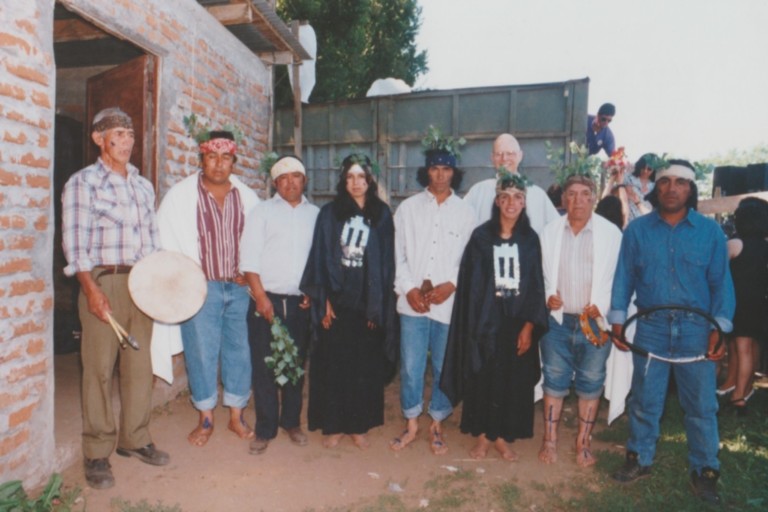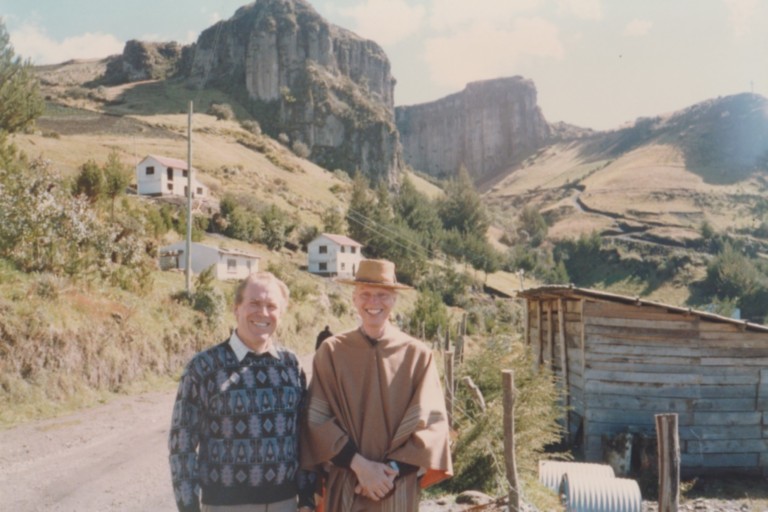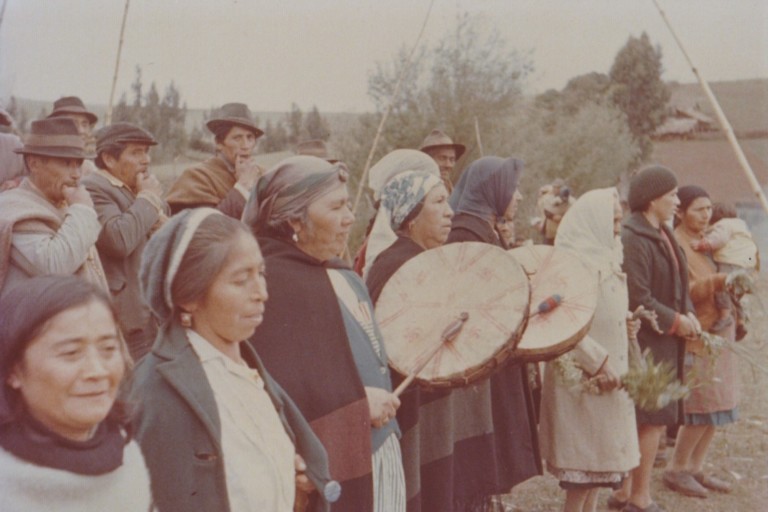"My experience with Father Frank Bélec, Brother and friend of the Mapuche People"
Service d'Animation Missionnaire
Testimony of Irma Porma
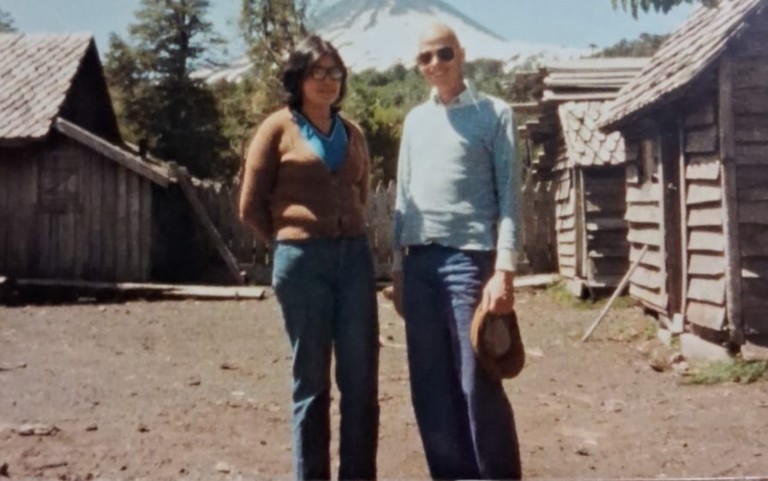
Irma Porma lives in Temuco, the capital of the Araucanía Region in southern Chile. From the very first contact, she was very excited to share her experience with Father Frank, whom she refers to as a great friend of hers and of the Mapuche People (*). Irma collaborated with the Mapuche Pastoral Office for about 40 years, working closely with Father Frank Bélec (PME) and Father Eugenio Teissen, from the Maryknoll priests.
Irma points out that they lived like a large family during the 40 years of service with the Mapuche Pastoral Office in the parishes of Padre las Casas, and Puerto Domínguez in Temuco. They gathered with the communities, visited families, celebrated together, etc. She adds that Father Frank was very beloved by the members of the Mapuche communities he served, mainly for his defense of the Mapuche People's culture. Father Frank advocated that Mapuche communities should maintain their culture, language, and traditions. Paradoxically, this stance that opened doors for him among the Mapuche People also caused some difficulties with those who argued that the Mapuche People should increasingly integrate into the "Chilean style" to avoid marginalization.
Continuing her story, Irma humorously mentions that she learned to speak "Mapudungun" (the language of the Mapuche People) after Father Frank, because although she understood it from her parents speaking it when she was a child, she wasn't fluent. She adds that the fact that Father Frank learned the language was something deeply appreciated by the people he accompanied, as it is a difficult language. She mentions that Masses were celebrated partly in Spanish and partly in Mapudungun, as there were expressions that had no translation.
When asked to comment on what struck her the most about Father Frank's missionary style, Irma says he was someone you could talk to, like talking to a family member. It is precisely because of this closeness that people remember him to this day and ask about him. She adds that it was difficult for people to understand why he left when he moved to Santiago.
Finally, she points out that there will not be another person like Father Frank for her, because in an environment and time where many wished for the Mapuche people not to thrive and remain subservient, Father Frank cared for them, respected them, and valued them. In the name of that friendship and the wonderful memories she has of Father Frank, she expresses that she would be very happy to welcome into her home members of the Quebec Foreign Mission who come to Chile.
(*) The Mapuche People are one of the most prominent indigenous peoples in Chile, both due to their social and demographic weight and their strong sense of cultural identity, which historically has found ways of resistance and adaptation in the face of interaction with Spaniards and Chileans. (Memoria Chilena. National Library of Chile)
Irma points out that they lived like a large family during the 40 years of service with the Mapuche Pastoral Office in the parishes of Padre las Casas, and Puerto Domínguez in Temuco. They gathered with the communities, visited families, celebrated together, etc. She adds that Father Frank was very beloved by the members of the Mapuche communities he served, mainly for his defense of the Mapuche People's culture. Father Frank advocated that Mapuche communities should maintain their culture, language, and traditions. Paradoxically, this stance that opened doors for him among the Mapuche People also caused some difficulties with those who argued that the Mapuche People should increasingly integrate into the "Chilean style" to avoid marginalization.
Continuing her story, Irma humorously mentions that she learned to speak "Mapudungun" (the language of the Mapuche People) after Father Frank, because although she understood it from her parents speaking it when she was a child, she wasn't fluent. She adds that the fact that Father Frank learned the language was something deeply appreciated by the people he accompanied, as it is a difficult language. She mentions that Masses were celebrated partly in Spanish and partly in Mapudungun, as there were expressions that had no translation.
When asked to comment on what struck her the most about Father Frank's missionary style, Irma says he was someone you could talk to, like talking to a family member. It is precisely because of this closeness that people remember him to this day and ask about him. She adds that it was difficult for people to understand why he left when he moved to Santiago.
Finally, she points out that there will not be another person like Father Frank for her, because in an environment and time where many wished for the Mapuche people not to thrive and remain subservient, Father Frank cared for them, respected them, and valued them. In the name of that friendship and the wonderful memories she has of Father Frank, she expresses that she would be very happy to welcome into her home members of the Quebec Foreign Mission who come to Chile.
(*) The Mapuche People are one of the most prominent indigenous peoples in Chile, both due to their social and demographic weight and their strong sense of cultural identity, which historically has found ways of resistance and adaptation in the face of interaction with Spaniards and Chileans. (Memoria Chilena. National Library of Chile)
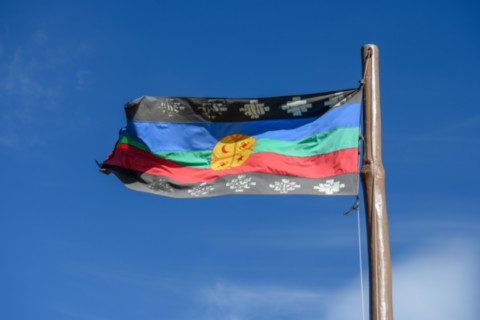
The Mapuches are the largest indigenous people in Chile and Argentina. They are also called Araucanians (a name given by the Spaniards to the indigenous people who inhabited the historical region of Arauco) and Reches, especially in the 16th century. Strictly speaking, it refers to those who inhabited Arauco or the territory corresponding to the current region of La Araucanía in Chile and their descendants. In a generic sense, it encompasses all those who spoke or speak the Mapuche language or Mapudungun, including several groups that emerged from the Mapuchization that occurred between the 18th and 19th centuries through the eastward expansion of the Andes, now Argentina.
